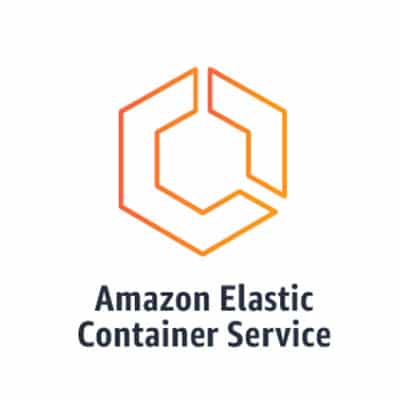Amazon ECS: A Comprehensive Guide to Elastic Container Service
In the expansive realm of cloud computing, Amazon Web
Services (AWS) stands as a lighthouse, guiding businesses through the
intricacies of modern technology. Among the numerous services offered, Amazon
ECS (Elastic Container Service) emerges as a powerful tool, revolutionizing how
containers are orchestrated and managed in the cloud. In this educational
voyage, we embark on a journey to unravel the treasures of Amazon ECS, delving
into its key features, use cases, and the underlying technology that sets it
apart.
Unveiling Amazon ECS: The Core Concepts
At its essence, Amazon ECS is a fully managed container
orchestration service, designed to simplify the deployment, management, and
scaling of containerized applications using Docker containers. It empowers
developers to focus on crafting exceptional applications while leaving the
intricacies of container management to the platform.
1. Containers and Tasks
To grasp the power of Amazon ECS, one must first understand
the concept of containers. Containers are lightweight, portable units that
encapsulate an application and its dependencies, ensuring consistent behavior
across different environments. Amazon ECS leverages Docker, a popular
containerization technology, to run containers seamlessly.
In the world of ECS, containers are grouped into tasks. A
task is a logical unit that defines which containers should be run together and
on which instances. This approach allows for the easy deployment of
multi-container applications, enabling complex architectures to be managed
effortlessly.
2. Clusters and Services
Amazon ECS operates within the context of clusters. A
cluster is a logical grouping of Amazon EC2 instances or AWS Fargate tasks. It
provides the underlying compute resources where containers are scheduled and
executed. With ECS, clusters are flexible, allowing you to adjust capacity and
resources as needed.
Services within ECS bring a new layer of power to container
management. A service defines how tasks are maintained, ensuring a specified
number of instances or tasks are always running and healthy. This is
particularly valuable for applications requiring high availability and fault
tolerance.
3. Task Definitions
Task definitions act as blueprints for tasks. They outline
the containers that comprise a task, including their Docker images, networking,
and resource requirements. Task definitions bring consistency to your
deployment process, making it easy to replicate environments across different
stages of development.
Setting Sail: Amazon ECS Use Cases
The versatility of Amazon ECS enables its application across
a wide spectrum of use cases. Let's navigate through some scenarios where ECS
truly shines:
1. Microservices Architectures
Microservices have revolutionized software architecture,
enabling applications to be broken down into small, independently deployable
units. Amazon ECS offers a perfect platform for deploying and managing
microservices, allowing each microservice to run in its own container while
maintaining seamless communication between services.
2. Continuous Integration and Continuous Deployment (CI/CD)
Efficient CI/CD pipelines are essential for modern software
development. ECS streamlines this process by providing a consistent environment
for testing and deploying applications. Developers can package their
applications into containers and rely on ECS to handle deployment, scaling, and
rollbacks.
3. Batch Processing and Data Workloads
For tasks involving batch processing, data transformation,
or analytics, Amazon ECS shines as a dynamic solution. It can efficiently scale
resources up or down based on workload demands, optimizing resource utilization
and processing efficiency.
The Technology Behind the Scenes
Understanding the technology that powers Amazon ECS deepens
the appreciation for its capabilities:
1. Docker Compatibility
ECS's compatibility with Docker makes it a natural choice
for container orchestration. Developers can leverage their existing Docker
images and compose applications using familiar Docker tools.
2. Auto Scaling and Load Balancing
Amazon ECS integrates seamlessly with Auto Scaling and
Elastic Load Balancing, ensuring that applications are resilient and can handle
varying levels of traffic. Auto Scaling adjusts the number of tasks based on
demand, while Load Balancing distributes incoming traffic across containers.
3. AWS Fargate Integration
A significant innovation within ECS is the integration with
AWS Fargate. Fargate abstracts away the need to manage the underlying
infrastructure, allowing users to focus solely on their containerized
applications. This serverless approach is a game-changer for simplifying
operations.
Embarking on Your ECS Journey
As you set sail on your Amazon ECS journey, keep in mind a
few key takeaways:
- Scalability
and Flexibility: Amazon ECS's scalability ensures that your
applications can grow with your business needs. Whether you're dealing
with spikes in traffic or steady workloads, ECS's ability to scale
resources ensures optimal performance.
- Simplicity
in Management: The management complexities of containers are
abstracted away, allowing developers to focus on writing code and crafting
applications. This streamlines development processes and reduces the
learning curve for new team members.
- Resource
Efficiency: Amazon ECS's resource allocation features, coupled with
its compatibility with Auto Scaling and AWS Fargate, ensure efficient
utilization of resources. This translates to cost savings and improved
application performance.
Disclaimer: The images used in this blog are for
illustrative purposes only and are sourced from Amazon Web Services.
Conclusion
Amazon ECS emerges as a powerful contender in the world of
container orchestration. Its ability to simplify the deployment, management,
and scaling of containerized applications has profound implications for modern
software development. As you navigate the sea of cloud technology, let Amazon
ECS be your guiding star, leading you toward more efficient, scalable, and
reliable applications. Embrace the educational journey of Amazon ECS and
witness how the world of containers transforms before your eyes.




0 Comments